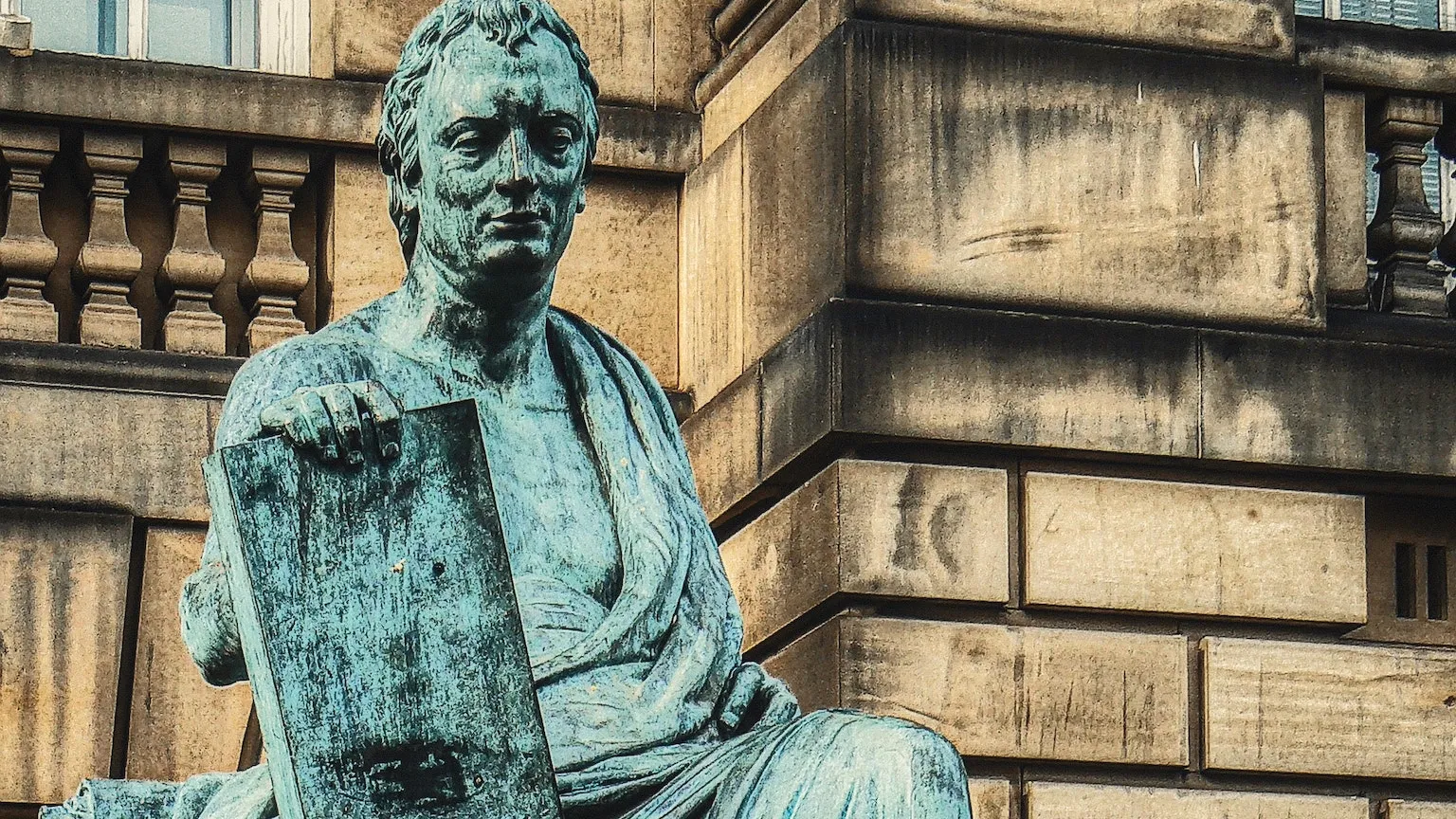Logic in Legal Reasoning
Chloe Jang
Philosopher David Hume once posed a fundamental question about perception:
“Do you follow the instincts and propensities of nature, may they say, in assenting to the veracity of sense? But these lead you to believe that the very perception or sensible image is the external object.”
David Hume, statue in Edinburgh.
Hume’s insight highlights a crucial challenge in legal reasoning: the complex relationship between perception, evidence, and objective truth. In the courtroom, facts are often presented through human perception—witness testimonies, visual evidence, and interpretations—but can these always be trusted? If our senses sometimes deceive us, how can legal professionals ensure that justice is based on objective reality rather than flawed perception?
-
Legal reasoning relies heavily on deductive logic, a process in which a general legal principle is established, the specific facts of a case are analyzed, and a conclusion is drawn based on how these facts align with the established principle. However, Hume’s critique of perception serves as a warning that what seems true at first glance may not be an accurate reflection of reality. A witness may genuinely believe they saw an event unfold in a particular way, but psychological studies show that memory can be fallible, influenced by bias, stress, or even suggestion. This raises an essential question in legal logic: how can perception be separated from objective fact?
-
Since human perception is not always reliable, legal reasoning must go beyond surface-level observations. The law demands a rigorous examination of evidence to determine what is actually true rather than what merely appears to be true. This challenge is evident in cases involving eyewitness testimony, forensic evidence, and conflicting narratives. Studies have shown that human memory is malleable, meaning people can misremember details or be influenced by leading questions. Even analysis, if misinterpreted or improperly conducted, can lead to wrongful convictions. Two individuals may recall the same event differently due to their unique perspectives, making it difficult to discern the objective truth.
Because of these challenges, legal professionals must critically evaluate all presented evidence, seeking verification through cross-examination, expert testimony, and logical consistency. This careful scrutiny is necessary to prevent errors in judgment that could result in injustice.
-
Judges play a critical role in navigating the limitations of perception. Their decision-making process requires a systematic examination of evidence, recognizing how perceptual biases can shape testimonies and ensuring consistency in legal interpretation. The ability to transcend subjective impressions and seek objective truth is a fundamental aspect of judicial reasoning. To accomplish this, judges must approach cases with a structured and logical mindset, weighing facts against established legal principles rather than relying on personal assumptions or emotions.
-
Modern advancements have introduced new ways to minimize perceptual biases in legal proceedings. Data-driven approaches, such as statistical models and forensic databases, help verify evidence more accurately than human observation alone. AI-assisted legal analysis can identify patterns in case law, reducing the risk of human error. Surveillance footage, digital forensics, and forensic software provide objective insights that go beyond subjective human testimony.
While technology enhances legal decision-making, it also raises ethical and philosophical questions. Can an algorithm truly account for the nuances of human morality? Should AI have a say in sentencing or case outcomes? As legal systems continue to integrate technology, these questions will shape the future of justice.
Conclusion
Logic remains the foundation of legal reasoning, ensuring that judicial decisions are rational, consistent, and based on a critical examination of evidence. By acknowledging the complexities of perception, legal professionals can refine their reasoning to ensure that justice is grounded in objective truth rather than illusion. The pursuit of fairness requires constant vigilance in assessing how perception influences legal arguments, reinforcing the need for structured, reasoned decision-making in every case.
Photo Credits:
K. Mitch Hodge / Unsplash

